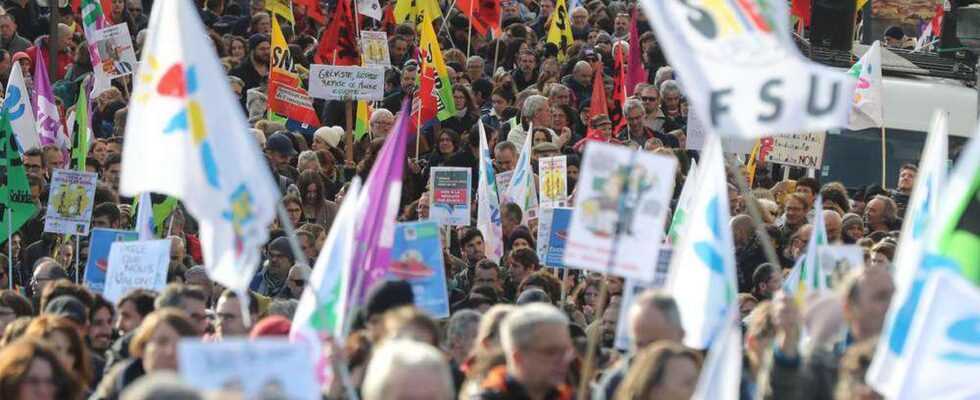By Julien Rousset
At the initiative of this movement, joined by most of the teachers’ organizations, the Snu-IPP, the majority union in the school, announces a “historic” strike
“A distance has gradually developed, in recent weeks, between those who run the ministry and those who, on the ground, are on the front line. In recent days, we can even speak of rupture ”estimates an inspector of the National Education of the academy of Bordeaux, joined this Wednesday by“ South West ”.
Because of his duty of secrecy, he does not want his name to be communicated. This Thursday, this official, responsible in his constituency for the training and inspection of around 200 teachers, will take part in the strike. “We find ourselves in a situation where the management of reality becomes almost impossible. The instructions of the ministry put everyone, the educational community, parents, in tension or even in panic. They change often and are partly inoperative. Of course, the context is very difficult, everyone is aware of it. But all too often, the government and the minister announce decisions without the means to implement them on the ground. The glaring example was the PCR tests required in the protocol last week. As inspectors, we are called by overworked school principals, and we do not always know what answers to provide. “
Executives too
Like him, part of the executives of National Education should be present in the processions of this Thursday, it is rare. Several unions of inspectors support the movement. The main union of principals and principals, the SNPDEN, also supports this day of action, deploring “overly complex protocols”, without necessarily calling on its members to stop work: “The health situation and the responsibility borne by the teams management can question our ability to declare a strike. It’s up to everyone to assess the opportunity. Symbolic actions such as a message on the doors and offices, or joining a demonstration, after ensuring the safety of goods and people in the establishment, can be adapted ”writes, on its site, the SNPDEN.
The call for this national strike was launched last Friday, initially for schools, by the Snuipp-FSU, the majority in primary education, since joined by a large number of organizations: SE-Unsa, Snes-FSU, Snalc, CGT Educ action, Sud, FO, Sgen CFDT. “This historic mobilization by its magnitude over the last twenty years illustrates the growing fed-up in schools”, notes, in a press release, the Snuipp-FSU, estimating that “75% of primary school teachers will go on strike, and that half of the schools could be closed ”.
The unions denounce insufficient means to deal with the pandemic crisis. “There is a lack of replacements, CO2 sensors, surgical masks …”, deplores Marc Vicieli, departmental co-secretary, in Gironde, of Snuipp-FSU.
Test race
The discontent increased in intensity with the protocol decided for the resumption on January 3. It relied on the multiplication of tests and contact tracing to limit class closures, and imposed a screening circuit: a PCR or antigen for all the children in a class as soon as a positive case was discovered, then a self-test. carried out at home on D + 2 and D + 4. Pharmacies and laboratories were taken by storm. Many parents said last week that they felt like they were chasing the tests. Monday evening, Prime Minister Jean Castex announced a relaxation of this framework: three self-tests for contact cases at school are now sufficient, without obligation of antigen test or PCR.
A sentence by Jean-Michel Blanquer on Tuesday has also soured relations more difficult than ever, at the end of the term of office, with the unions. “You don’t strike against a virus,” he said. Wednesday, Gabriel Attal, spokesperson for the government, assured that the executive was “very supportive” of his minister, with whom he “advances in pack” in this crisis.
Support from the FCPE
On the side of parents of students, the FCPE also supports the movement: the federation has asked parents not to send children to school. Rarely does a parents’ federation so explicitly support a strike. A position which is however not shared for APEL and PEEP: in a press release, the leaders of the latter say “understand the difficulties and concerns of staff in schools and educational establishments. Parents are just as exhausted, but the school has to stay open. “
